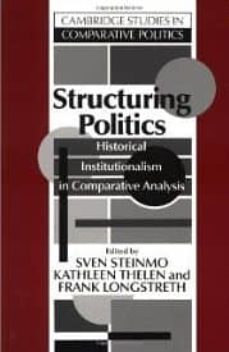Imprescindibles
Más vendidos Libros más leídos eBooks más leídos Todos los libros Todos los libros Autores destacados Series y sagas
Recomendados Libros recomendados Autores destacados Libros que inspiran Vidas con historia LGTBIQ+ English books
Ficción
Literatura Contemporánea Estudios literarios Clásicos Cuentos Poesía Teatro Libros de bolsillo Sagas literarias
Géneros literarios Novela romántica y erótica Novela negra Novela histórica Narrativa fantástica Novela de ciencia ficción Novela de terror Narrativa de humor Narrativa de viajes
No Ficción
Ciencias y tecnología Biología Ciencias Ciencias naturales Divulgación científica Informática Ingeniería Matemáticas Medicina Salud y dietas Formación Idiomas Estilo de vida Libros de Cocina Guías de viaje Narrativa de viajes Deportes Libros de Juegos Manualidades
Humanidades Autoayuda y espiritualidad Ciencias humanas Derecho Economía y Empresa Psicología y Pedagogía Filosofía Sociología Filología Biblioteconomía Estudios filológicos Estudios lingüísticos Estudios literarios Historia y crítica de la Literatura
Infantil
Juvenil
#Jóvenes lectores Narrativa juvenil Clásicos adaptados Libros Wattpad Libros Booktok Libros de influencers Libros de Youtubers Libros Spicy Juveniles Libros LGTBIQ+ Temas sociales Libros ciencia ficción Libros de acción y aventura Cómic y Manga Juvenil Cómic Juvenil Manga Shonen Manga Shojo Autores destacados Jennifer L. Armentrout Eloy Moreno Nerea Llanes Hannah Nicole Maehrer
Libros de fantasía Cozy Fantasy Dark academia Hadas y Fae Romantasy Royal Fantasy Urban Fantasy Vampiros y hombres lobo Otros Misterio y terror Cozy mistery Policiaca Spooky Terror Thriller y suspense Otros
Libros románticos y de amor Dark Romance Clean Romance Cowboy Romance Mafia y amor Romance dramatico Romance dramatico Romcom Sport Romance Otros Clichés Enemies to Lovers Friends to Lovers Hermanastros Slow Burn Fake Dating Triángulo amoroso
Cómic y Manga
Novela gráfica Novela gráfica americana Novela gráfica europea Novela gráfica de otros países Personajes, series y sagas Series y sagas Star Wars Superhéroes Cómics DC Cómics Marvel Cómics otros superhéroes Cómics Valiant
eBooks
Literatura Contemporánea Narrativa fantástica Novela de ciencia ficción Novela de terror Novela histórica Novela negra Novela romántica y erótica Juvenil Más de 13 años Más de 15 años Infantil eBooks infantiles
Humanidades Autoayuda y espiritualidad Ciencias humanas Economía y Empresa Psicología y Pedagogía Filosofía Historia Historia de España Historia Universal Arte Cine Música Historia del arte
Ciencia y tecnología Ciencias naturales Divulgación científica Medicina Salud y dietas Filología Estudios lingüísticos Estudios literarios Historia y crítica de la Literatura Estilo de vida Cocina Guías de viaje Ocio y deportes
SVEN STEINMO
Recibe novedades de SVEN STEINMO directamente en tu email
Filtros
Del 1 al 2 de 2
CAMBRIDGE UNIVERSITY PRESS 9780521145466
The Evolution of Modern States is a significant contribution to the literatures on political economy, globalization, historical institutionalism, and social science methodology. The book begins with a simple question: Why do rich capitalist democracies respond so differently to the common pressures they face in the early twenty-first century? Drawing on insights from evolutionary theory, Sven Steinmo challenges the common equilibrium view of politics and economics and argues that modern political economies are best understood as complex adaptive systems. The book examines the political, social, and economic history of three different nations - Sweden, Japan, and the United States - and explains how and why these countries have evolved along such different trajectories over the past century. Bringing together social and economic history, institutionalism, and evolutionary theory, Steinmo thus provides a comprehensive explanation for differing responses to globalization as well as a new way of analyzing institutional and social change.
Ver más
Tapa blanda
CAMBRIDGE UNIVERSITY PRESS 9780521428309
This volume brings together original essays by scholars working on a diverse range of empirical issues, but whose work is in each case informed by a "historical institutional" approach to the study of politics. By bringing these pieces together, the volume highlights the methodological and theoretical foundations of this approach and illustrates the general contributions it has made to comparative politics. The essays demonstrate the potential of the approach to illuminate a broad range of issues such as how and why institutions change, how political ideas are filtered through institutional structures in the formation of specific policies, and how institutional structure can have unintended effects on the shaping of policy. Through these richly detailed pieces, the reader is provided not only a thorough understanding of the method of analysis but also an overview of the theoretical underpinnings of the approach. Show more Show less
Ver más
Tapa blanda
Del 1 al 2 de 2



























